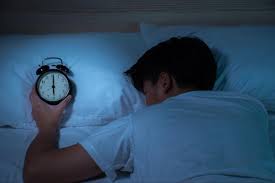Alcohol and Sleep Connection: Why Drinking Before Bedtime Can Disrupt Your Rest
Many of us enjoy a nightcap before bed to help us relax and unwind after a long day. While this may seem like a harmless habit, it can actually have a negative impact on the quality of our sleep.
Alcohol is a sedative that can make us feel drowsy and help us fall asleep faster. However, as the alcohol begins to wear off, it can disrupt our sleep cycle and lead to less restorative and more interrupted sleep.
One of the main ways alcohol affects our sleep is by suppressing REM (rapid eye movement) sleep. REM sleep is the stage of sleep where we dream and process emotions. It’s also important for memory consolidation and learning. When we don’t get enough REM sleep, we may feel groggy, irritable, and have difficulty concentrating the next day.
Alcohol can also cause us to wake up more frequently throughout the night. This is because it increases the production of urine, which can cause us to wake up needing to use the bathroom. Additionally, alcohol can cause snoring or sleep apnea, which further disrupts our rest.
Another way alcohol affects our sleep is by altering our circadian rhythm. Our circadian rhythm is our body’s internal clock that regulates when we feel sleepy or awake. Alcohol can interfere with this rhythm by causing us to feel sleepy earlier in the evening than usual. This can lead to waking up earlier in the morning feeling unrefreshed.
It’s important to note that even moderate amounts of alcohol can have an impact on our sleep quality. While drinking in moderation (one drink per day for women and two drinks per day for men) may not cause significant disruptions in healthy individuals, those with pre-existing sleep disorders or other health conditions should avoid drinking before bedtime altogether.
If you’re struggling with poor quality sleep or insomnia, it’s best to avoid alcohol before bed and focus on establishing healthy sleep habits. This includes creating a relaxing bedtime routine, avoiding caffeine and electronics before bed, and maintaining a consistent sleep schedule.
In conclusion, while alcohol may seem like a harmless way to unwind before bed, it can actually have a negative impact on the quality of our sleep. By understanding the connection between alcohol and sleep, we can make informed choices that promote better rest and overall health.
6 Tips for Better Sleep: How Alcohol Affects Your Rest
- Avoid drinking alcohol before going to bed.
- Do not drink more than one or two drinks in an evening.
- Drink plenty of water throughout the day and before going to bed.
- Consider avoiding caffeine after dinner as it can interfere with sleep quality and duration.
- If you are a light sleeper, avoid drinking alcohol as it can make it harder to stay asleep for a full night’s rest.
- Try to go to bed and wake up at the same time each day, even on weekends, for better sleep quality and regularity of your circadian rhythm (sleep-wake cycle).
Avoid drinking alcohol before going to bed.
If you have trouble sleeping or want to improve the quality of your sleep, one simple tip is to avoid drinking alcohol before going to bed. While alcohol may help you fall asleep faster, it can actually disrupt your rest and leave you feeling groggy and unfocused the next day.
Alcohol can interfere with your body’s natural sleep cycle by suppressing REM sleep, increasing the production of urine, and causing snoring or sleep apnea. Even moderate amounts of alcohol can have an impact on your sleep quality.
Instead of relying on alcohol to help you relax before bed, try establishing a relaxing bedtime routine that promotes better rest. This could include taking a warm bath, reading a book, or practicing relaxation techniques such as meditation or deep breathing.
By avoiding alcohol before bed and focusing on healthy sleep habits, you can improve the quality of your rest and wake up feeling refreshed and energized for the day ahead.
Do not drink more than one or two drinks in an evening.
The connection between alcohol and sleep is well-established. While alcohol may help us fall asleep faster, it can disrupt our sleep cycle and lead to less restorative and more interrupted sleep. To promote better quality sleep, it’s important to limit your alcohol intake before bedtime.
Experts recommend not drinking more than one or two drinks in an evening. This is because even moderate amounts of alcohol can have an impact on our sleep quality. Drinking more than this can lead to further disruptions in our rest, including snoring, sleep apnea, and waking up frequently throughout the night.
By limiting your alcohol intake before bedtime, you can improve the quality of your sleep and wake up feeling refreshed and energized. Additionally, establishing healthy sleep habits such as creating a relaxing bedtime routine, avoiding caffeine and electronics before bed, and maintaining a consistent sleep schedule can further enhance the benefits of limiting your alcohol intake.
In conclusion, if you’re looking to improve your overall health and well-being by getting better quality sleep, consider limiting your alcohol intake before bedtime. By following this simple tip, you can take steps towards a healthier lifestyle and better rest.
Drink plenty of water throughout the day and before going to bed.
Alcohol and Sleep Connection: The Importance of Staying Hydrated
If you’re someone who enjoys a drink before bed, it’s important to understand the connection between alcohol and sleep. While alcohol may help you fall asleep faster, it can actually disrupt your rest and leave you feeling groggy and unrefreshed the next day.
One way to mitigate the negative effects of alcohol on your sleep is to stay hydrated. Alcohol is a diuretic, which means it increases urine production and can cause dehydration. Dehydration can lead to headaches, fatigue, and difficulty concentrating – all of which can further disrupt your sleep.
To prevent dehydration, it’s important to drink plenty of water throughout the day and before going to bed. Aim for at least eight glasses of water per day and consider having a glass or two before bedtime. This will help keep you hydrated throughout the night and reduce the likelihood of waking up thirsty or needing to use the bathroom.
Staying hydrated also has other benefits for your overall health. It helps regulate body temperature, lubricates joints, aids in digestion, and supports healthy skin.
In conclusion, staying hydrated is an important factor in promoting better sleep quality – especially if you enjoy a drink before bed. By drinking plenty of water throughout the day and before bedtime, you can mitigate some of the negative effects of alcohol on your rest and wake up feeling more refreshed in the morning.
Consider avoiding caffeine after dinner as it can interfere with sleep quality and duration.
If you’re looking to improve your sleep quality and duration, it’s important to consider the impact of caffeine on your body. While caffeine can help us feel alert and focused during the day, consuming it too close to bedtime can interfere with our ability to fall asleep and stay asleep.
Caffeine is a stimulant that can increase heart rate, blood pressure, and brain activity. It can also disrupt the production of melatonin, a hormone that regulates sleep-wake cycles. This means that even if we are able to fall asleep after consuming caffeine, we may experience less restorative sleep and wake up feeling groggy or unrefreshed.
To promote better sleep habits, it’s recommended to avoid caffeine after dinner. This gives your body enough time to metabolize the caffeine before bedtime. It’s important to note that caffeine can stay in our system for up to 6 hours after consumption, so it’s best to avoid it altogether in the evening if possible.
If you’re a coffee lover or rely on caffeine for work or other activities, consider switching to decaf or herbal tea in the evening. You can also try gradually reducing your caffeine intake throughout the day to minimize its impact on your sleep.
By being mindful of your caffeine consumption and its impact on your sleep quality and duration, you can take steps towards establishing healthy sleep habits that promote overall well-being.
If you are a light sleeper, avoid drinking alcohol as it can make it harder to stay asleep for a full night’s rest.
If you’re a light sleeper, you know how important it is to get a full night’s rest. Unfortunately, drinking alcohol before bed can make it harder to achieve this goal. Alcohol is a sedative that can help you fall asleep faster, but it also disrupts your sleep cycle and makes it more difficult to stay asleep throughout the night.
If you’re someone who already struggles with waking up frequently or having difficulty falling back asleep after waking up, drinking alcohol could exacerbate these issues. This is because alcohol can cause you to wake up more frequently throughout the night and experience less restorative sleep.
To ensure that you get the best possible sleep, it’s important to avoid drinking alcohol before bedtime if you’re a light sleeper. Instead, focus on creating a relaxing bedtime routine that promotes healthy sleep habits like avoiding electronics before bed and keeping your bedroom cool and dark.
By taking steps to prioritize your sleep health and avoid potentially disruptive habits like drinking alcohol before bed, you can enjoy better rest and feel more refreshed and energized throughout the day.
Try to go to bed and wake up at the same time each day, even on weekends, for better sleep quality and regularity of your circadian rhythm (sleep-wake cycle).
One of the most important factors in achieving good quality sleep is maintaining a regular sleep schedule. Going to bed and waking up at the same time each day, even on weekends, can help regulate your circadian rhythm and improve the quality of your rest.
Our circadian rhythm is our body’s internal clock that regulates when we feel sleepy or awake. When we maintain a consistent sleep schedule, our bodies learn when it’s time to sleep and when it’s time to wake up. This can help us fall asleep faster and wake up feeling more refreshed.
On the other hand, irregular sleep schedules can disrupt our circadian rhythm and lead to poor quality sleep. For example, staying up late on weekends and sleeping in can throw off our body’s internal clock, making it harder to fall asleep and wake up during the week.
To establish a regular sleep schedule, try to go to bed and wake up at the same time each day, even on weekends. This may take some getting used to at first, but over time your body will adapt and you’ll find it easier to fall asleep and wake up at these times.
In addition to maintaining a regular sleep schedule, there are other steps you can take to promote better quality rest. These include creating a relaxing bedtime routine, avoiding caffeine and electronics before bed, and ensuring that your sleeping environment is quiet, dark, and comfortable.
By prioritizing good sleep habits like maintaining a regular sleep schedule, you can improve the quality of your rest and enjoy better overall health and well-being.




